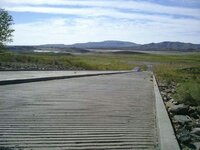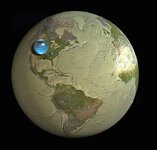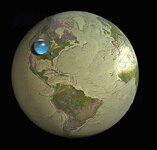Well you can still believe gooberment on healthcare eerrr or unemployment numbers eerrr or how good the economy is doing eerŕr or maybe they will finish that border fence or its your guns that jump up and cause crime all on their own. Ya you can believe them on global warming, they would never lie about that

I'd be more willing to consider believing them if they didn't have a vested political and financial interest in sticking with the current belief. Until they do away with those, I have little reason to believe them just because their bought and sold 'scientists' say so. Science can be just as dirty and manipulated as politics. It's been that way for hundreds of years, back when it was the big churches in Europe deciding for folks what was 'science' and what wasn't. Just a big power trip with scientists showing their results can be sold to the highest bidder.
Get government money out of science. That would be a good first start.
It's really an 'inconvenient truth' that scientists subsist on a lot of government backed grants, especially when their 'results' provide support for even more taxes and regulation.















